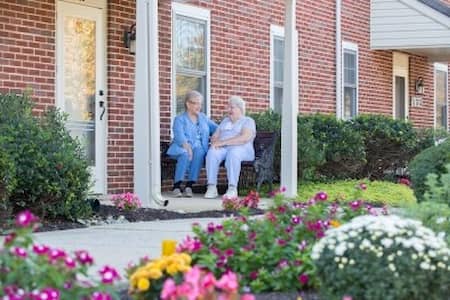Seniors of today are looking to make the most out of their retirement years. They seek to enjoy every upcoming moment, to remain as healthy as possible, to provide service to their community and to explore new opportunities. The needs of seniors are evolving especially as more look to age in place. Thus, there is a variety of senior living community models aimed at providing a comfortable and welcoming environment for a different needs and preferences of seniors.
When choosing a senior living community for yourself or for a loved one, you will have many important decisions to make. Here are a few things that you should keep in mind: level of care needed now and in the future, financial cost, what type of community is it and location of the community.
Take a look at these common community types:
Active Adult 55+ Communities for Home Buyers
Many seniors today are looking to age in a healthy and fulfilling manner. 55 Plus communities are neighborhoods of private homes or townhomes that are only for those 55 plus. Homes often feature design elements to keep in mind senior preferences such as first floor master bedrooms, walk-in showers, easy entrance, and more. Also, many communities offer community spaces, ground care and other services. Some will even include planned activities and offer a wellness center. To cover the cost of community upkeep and shared spaces, there is often a monthly fee. Newer 55+ communities often have a mix of retail and residential which creates walkable communities. Concerns with 55+ Communities is lack of support if additional care becomes necessary including memory care and long-term care.
Senior Apartments
Senior independent living apartments are age restricted to ensure those living there are 55 or older. They often offer activities and services that seniors would enjoy. Like the homes in the 55+ Communities, the design of the apartment considers the needs of seniors with wider doors, elevators and more. Apartments, also, take away the cost and stress of caring for a home such as groundskeeping, exterior maintenance and interior care like appliances. Some apartments will offer in-home care, dining services and activities for additional cost. Like 55+ Communities, future needs for care can be a concern.
Assisted Living Homes
Assisted Living Homes or Personal Care Homes are perhaps one of the most common types of retirement communities in the country. In Personal Care Homes, seniors receives varying levels of assistance with activities of daily living. Support may help them with memory care, diet, medication management, bathing, laundry and more. The basic premise is to have a vibrant community of seniors who have access to daily care, social activities, and medical attention as necessary but maintain independence in their daily life. Licensed nursing staff is available 24/7.
Residents typically live in furnished or unfurnished units that range in size, style, and overall theme. The aim is to create a personalized environment where seniors can remain comfortable and independent. Assisted Living can be standalone which means if a higher level of care is needed on a long-term or short-term basis, another location will need to be found. However, Personal Care and Assisted Living can also be part of a larger Life Plan Community which will give you access to a higher level of care if that becomes necessary.
Nursing Homes for Skilled Nursing Care
Nursing homes, also referred to as Senior Healthcare Centers or Skilled Care, provide a higher level of medical care to seniors than in Personal Care. Residents of nursing homes typically require more specialized skilled nursing care from nursing staff including RNs, LPNs and CNAs.
At a nursing home, you can expect to receive assistance with taking medication, activities of daily living and meals. Residents have medical reasons for being in Healthcare Centers for either long-term care or short-term rehabilitation. Skilled Nursing is essentially an upper level of nursing home care.
Memory Care Community
Memory Care Support Communities focused on caring for those with dementia like Alzheimer’s and other memory impairments. They specialize in providing care and activities for those experience memory loss. Depending on their license they can be a Personal Care facility, a Long-Term Care facilities or both. Due to their specialization, they often offer secured memory care units for those with tendency to wander.
Life Plan Communities (aka “Continuing Care Retirement Communities”)
A Life Plan Community, like United Zion Retirement Community, is a retirement community designed to offer continuum of living options as you age. They provide continued and long-term care to seniors from active adult independent residential living apartments and cottages to Personal Care to Long-Term Nursing Care. For information about short-term rehabilitation care, click here.
Life Plan Communities make it easier for you to plan your retirement from an early stage. By signing up for a Life Plan Community, you do not need to worry about finding the next level of care if you need it as you know that the community you are in can provide the needed care. Most folks start with apartments and cottages where residents live independently. These communities offer a variety of amenities from on-campus dining, social activities, fitness center, on-campus salon and more. Plus, they can receive services like housekeeping, laundry, grounds and maintenance. These additional services and knowing that skilled care is available in the future reduces worries and provides more care-free living.
The overall goal of a Life Plan Community is to keep residents on their feet and to promote a healthy, active lifestyle. From early morning walks to afternoon socializing, Life Plan Communities are equipped with amenities that promote health, social interaction, and overall wellness.
Learn more about United Zion Retirement Community and why a Life Plan Community is the right fit for you by call us at (717) 627-8421 or requesting information.

